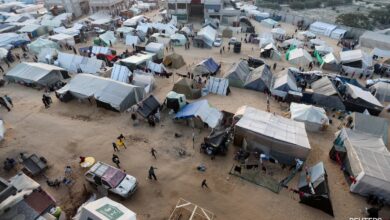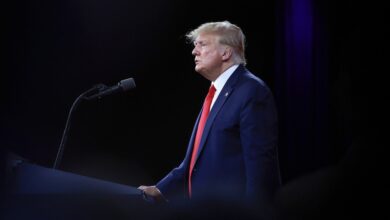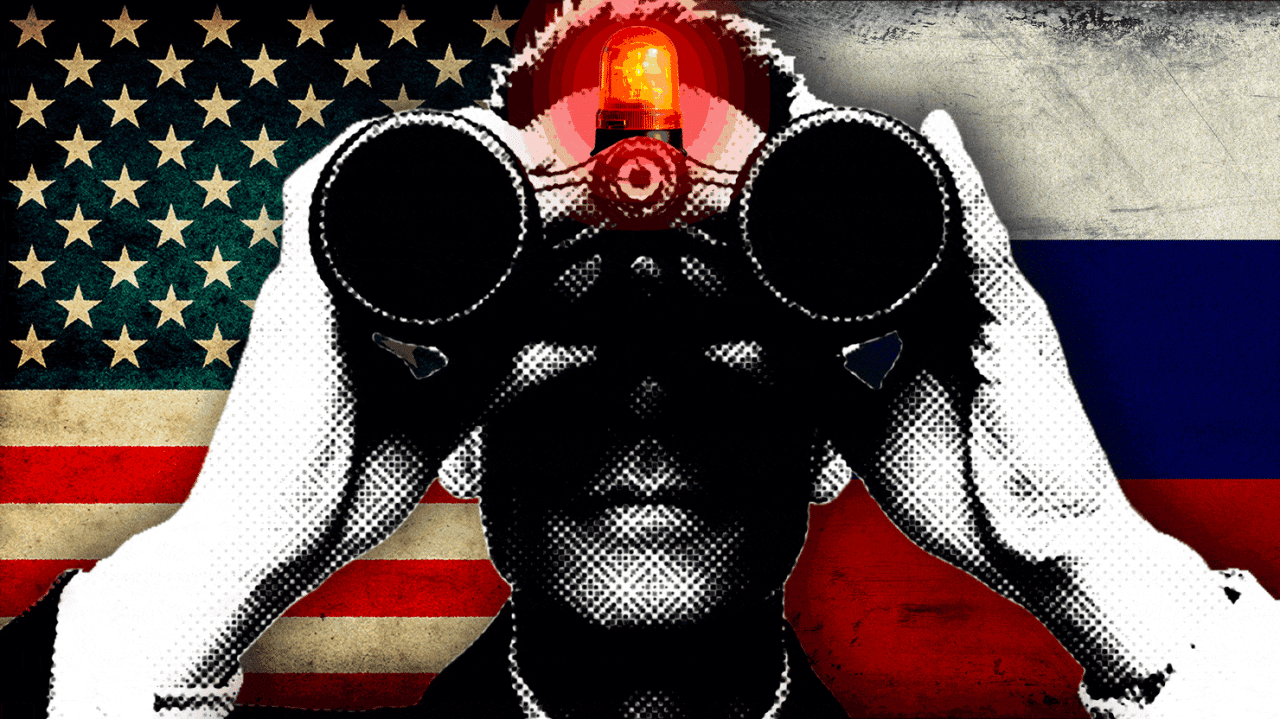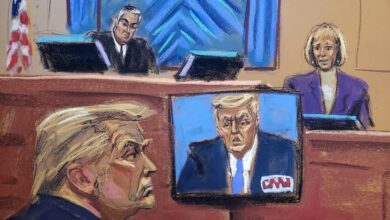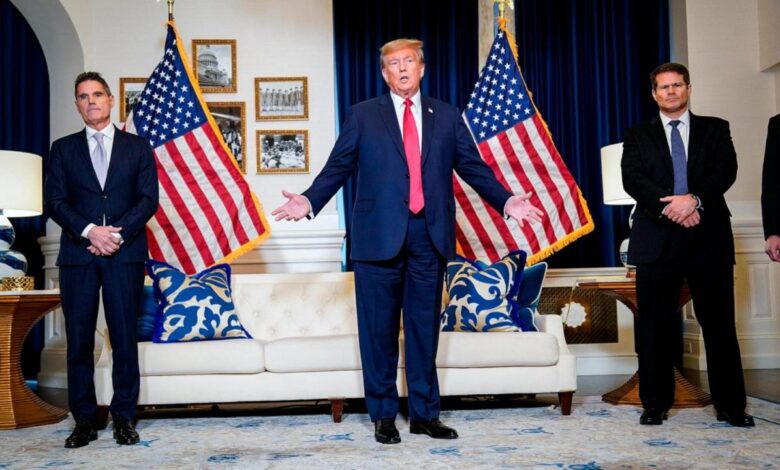
Supreme Court Trump Immunity A Deep Dive
Supreme Court Trump immunity is a critical legal issue, examining the extent of presidential protection from legal action. This exploration delves into the historical precedents, analyzing the arguments for and against immunity in the context of the Trump administration. We’ll dissect the scope and limits of such protection, comparing Trump’s claims to those of past presidents, and examining potential future implications for the executive and judicial branches.
The article investigates the historical evolution of presidential immunity, tracing its roots through key Supreme Court cases. It will analyze specific instances where immunity was relevant to the Trump presidency, examining the legal arguments, and considering the public perception of these claims. Finally, it will consider the Supreme Court’s role in defining immunity and its potential impact on future administrations.
Historical Context of Presidential Immunity
The concept of presidential immunity, shielding presidents from legal actions while in office, has a complex and evolving history in the US legal system. It’s a delicate balance between the need to protect the executive branch’s ability to function effectively and the principle of accountability under the law. This balance has been tested repeatedly through Supreme Court rulings and legal challenges.The historical development of this doctrine reflects a tension between the perceived need for executive independence and the crucial role of the judiciary in upholding the rule of law.
Early interpretations of the Constitution lacked a clear definition of the scope of presidential immunity, leaving the matter largely open to interpretation. This ambiguity has fueled ongoing debates and legal challenges throughout American history.
Evolution of Supreme Court Rulings
The Supreme Court’s approach to presidential immunity has shifted significantly over time. Early cases, lacking explicit guidance from the Constitution, often favored a broader interpretation of executive privilege and implied immunity. Later rulings, influenced by the rise of the administrative state and evolving understandings of accountability, have tended to narrow the scope of presidential immunity.
Key Legal Precedents
Understanding the historical evolution of presidential immunity requires examining specific Supreme Court cases. These rulings laid the groundwork for subsequent interpretations and established key precedents.
| Case | Year | Decision | Key Points |
|---|---|---|---|
| United States v. Nixon | 1974 | The Court ruled that executive privilege is not absolute and must yield to the demands of due process of law. | This landmark case, during the Watergate scandal, significantly curtailed the scope of executive privilege, a crucial component of the broader discussion on presidential immunity. The Court recognized the importance of balancing the executive branch’s need for confidentiality with the public’s right to access justice. |
| Clinton v. Jones | 1997 | The Court held that a sitting president is not immune from civil lawsuits related to conduct that occurred before taking office. | This ruling significantly limited the scope of presidential immunity, clarifying that the presidency does not grant immunity from pre-presidency actions. The court emphasized the importance of holding individuals accountable for their actions. |
| Trump v. Vance | 2020 | The Court ruled that a subpoena for financial records issued to the former President is valid. | The court determined that the subpoena was appropriate and the former president had no immunity to avoid compliance. This case highlighted the balance between executive power and the legal system’s authority to obtain relevant evidence. |
The Trump Presidency and Immunity Claims
The concept of presidential immunity, while historically debated, has taken on heightened significance in the context of the Trump presidency. Numerous instances during his administration sparked intense legal and political scrutiny regarding the scope and application of such immunity. Understanding the specific claims and arguments surrounding these instances is crucial for evaluating the broader implications of presidential power and accountability.The Trump presidency witnessed a series of events where the potential application of presidential immunity became a focal point.
This involved situations where the former President faced scrutiny, investigations, and legal challenges. The legal arguments surrounding these claims were multifaceted, with proponents and opponents presenting differing interpretations of the historical context and constitutional principles.
Instances of Immunity Relevance
The Trump administration saw several instances where the concept of presidential immunity was implicated. These included investigations into potential obstruction of justice, financial dealings, and actions related to the January 6th Capitol attack. The former President and his allies invoked immunity arguments in attempts to protect him from investigations and legal processes.
Legal Challenges and Arguments Regarding Trump’s Immunity
Various legal challenges were raised concerning Trump’s immunity claims. These challenges often focused on the scope and limits of presidential immunity, arguing that certain actions or situations fell outside the protection afforded by this principle. Proponents of immunity contended that it was essential for the effective functioning of the executive branch, ensuring the President could perform their duties without fear of constant legal interference.
The Supreme Court’s decision on Trump immunity is definitely grabbing headlines, but it’s worth remembering that other high-profile legal battles are also in play. For example, the current contract negotiations between the Kansas City Chiefs and Andy Reid, as detailed in this article on Andy Reid Chiefs contract negotiations , are keeping fans on the edge of their seats.
Ultimately, the legal precedents set in these cases will continue to shape our understanding of presidential power and accountability.
Conversely, opponents argued that the principle should not shield the President from accountability for alleged misconduct, particularly when it impacted the integrity of the justice system and national interests.
Arguments for and Against Trump’s Immunity
The legal arguments presented regarding Trump’s immunity were intricate and varied. Arguments for immunity frequently relied on historical precedents, emphasizing the need for a strong executive branch and the potential for chilling effects on presidential decision-making if immunity were not granted. Conversely, arguments against immunity emphasized the importance of accountability and the need for the legal system to function independently of presidential influence.
The specifics of each case and the nature of the alleged misconduct were central to the arguments presented on both sides.
The Supreme Court’s decision on Trump’s immunity is a fascinating case, raising questions about presidential power and accountability. While this legal battle unfolds, it’s worth considering the tragic events surrounding the Super Bowl in Kansas City, particularly the super bowl kansas city shooting. The parallels between the complex legal arguments and the real-world consequences of such events are undeniable.
Ultimately, the Supreme Court’s decision on Trump’s immunity will likely have lasting implications for future presidents and the balance of power within the American government.
Public Perception and Political Context
The public perception surrounding Trump’s immunity claims was significantly influenced by the highly charged political climate of the time. The controversy surrounding these claims generated intense debate and polarized public opinion. Different political perspectives offered varied interpretations of the legal arguments, reflecting the broader partisan divisions present in the country. The perceived politicization of the legal proceedings further amplified the public discourse and fueled ongoing discussion about the balance between executive power and the rule of law.
The Scope and Limits of Presidential Immunity: Supreme Court Trump Immunity
Presidential immunity, a complex legal concept, has been a subject of intense scrutiny and debate, particularly in recent years. While the Supreme Court has historically recognized a degree of immunity for presidents, the precise scope and limitations of this protection remain a crucial point of contention. Understanding these boundaries is essential to appreciating the potential implications for future administrations and legal challenges.The Supreme Court’s interpretation of presidential immunity, while acknowledging its existence, has also consistently emphasized its limitations.
This delicate balance between protection and accountability is crucial for maintaining a functioning democracy. The Court’s rulings have sought to strike a careful balance, recognizing the need to safeguard the president’s ability to discharge their duties while simultaneously upholding the principles of the rule of law.
Scope of Presidential Immunity
The scope of presidential immunity, as interpreted by the Supreme Court, typically encompasses actions taken within the legitimate sphere of presidential duties. This protection is not absolute, however, and its application is carefully considered on a case-by-case basis. The Court recognizes that presidential actions, particularly those involving official responsibilities, may necessitate some level of protection from legal challenges.
Limitations of Presidential Immunity
Supreme Court precedents have established clear limitations on the scope of presidential immunity. These limitations are grounded in the need to balance the president’s need for protection with the fundamental principles of accountability and the rule of law.
- Immunity does not extend to actions undertaken outside the scope of official duties. This principle distinguishes between actions performed in a presidential capacity and those that are purely personal or private in nature. For example, if a president were to engage in personal business dealings that were unrelated to their official duties, any legal challenges stemming from those actions would likely not be shielded by immunity.
- Immunity is not a blanket protection against all legal actions. The Court’s rulings have consistently acknowledged that immunity does not preclude a president from being held accountable for actions that clearly violate the law. This means that criminal charges or civil lawsuits could potentially proceed even if the president invokes immunity, provided the actions are deemed outside the scope of legitimate presidential duties.
- Immunity does not preclude investigations. The process of investigation, including interviews and document requests, is often a preliminary step in any legal action. Presidential immunity does not automatically halt these investigative procedures. The Court has consistently acknowledged that legitimate investigations can proceed even if the president asserts immunity, especially if the investigation is focused on activities outside the scope of presidential duties.
Specific Actions Where Immunity May Not Apply
Presidential immunity is not a shield against all legal proceedings. The Court’s interpretation of immunity has made it clear that certain actions are not protected by this privilege.
- Criminal Investigations: If a president is suspected of committing a crime, immunity may not apply. The potential for criminal prosecution, based on evidence and legal findings, would supersede any claims of immunity.
- Civil Lawsuits: In civil cases, immunity may be more complex to evaluate, depending on the nature of the alleged misconduct. If the actions are deemed outside the scope of presidential duties or if they constitute violations of established legal standards, the president’s immunity may not be sufficient to protect them.
Comparison of Immunity Limits in Different Contexts
The limits of presidential immunity vary depending on the context of the legal challenge.
| Context | Potential Limits of Immunity |
|---|---|
| Criminal Investigations | Immunity may not apply if the alleged actions constitute a crime, regardless of whether those actions were undertaken in an official capacity. |
| Civil Lawsuits | Immunity may not apply if the alleged actions are deemed outside the scope of official duties or violate established legal standards. |
Comparing Trump’s Immunity Claims to Past Cases
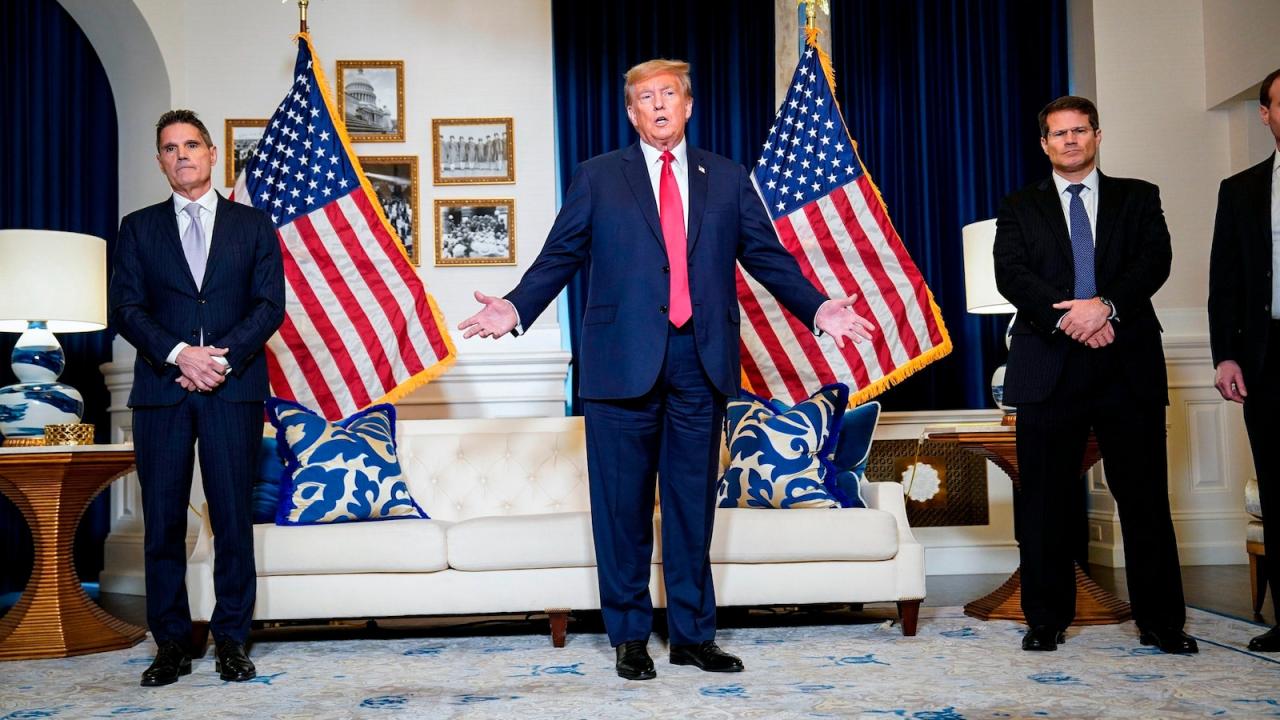
Analyzing Trump’s immunity claims necessitates a comparison with those of past presidents. While the legal landscape surrounding presidential immunity has evolved, certain common threads and significant distinctions emerge when scrutinizing these precedents. This examination provides crucial context for understanding the potential implications of Trump’s assertions.
Similarities in Legal Arguments
A recurring theme in presidential immunity cases, including those involving Trump, is the assertion of executive privilege. This privilege, although not absolute, allows presidents to withhold information deemed vital to national security or sensitive internal deliberations. Past presidents have also argued for broad interpretations of the executive power to protect sensitive information. This overlaps with Trump’s arguments, although the specific justifications and applications differ.
The Supreme Court’s decision on Trump’s immunity is definitely a hot topic right now. It’s all about whether or not the former president can avoid testifying in various investigations, but it’s also interesting to look at how this ties into the recent “read like wind recommendations scandal.” This whole affair, detailed in read like wind recommendations scandal , highlights the potential for conflicts of interest and questionable practices in a way that subtly echoes the ongoing debate about presidential immunity.
Ultimately, the Supreme Court’s decision on Trump’s immunity will be crucial in shaping the future of presidential accountability.
Both rely on the principle that certain information must be shielded from public scrutiny to maintain the integrity of the executive branch.
Differences in Legal Arguments, Supreme court trump immunity
Significant distinctions exist between Trump’s claims and those of past presidents. The unique circumstances surrounding Trump’s presidency, including allegations of obstruction of justice and other controversies, have potentially broadened the scope of legal arguments compared to past cases. Furthermore, Trump’s attempts to invoke immunity in situations potentially involving criminal investigations mark a divergence from past precedent, where the focus was more often on the separation of powers rather than potential criminal liability.
This crucial difference necessitates a nuanced understanding of the potential legal ramifications.
Comparison Table of Presidential Immunity Cases
| President | Case | Issue | Outcome |
|---|---|---|---|
| Nixon | United States v. Nixon (1974) | Executive privilege vs. subpoena for Watergate tapes | Supreme Court ruled against Nixon, holding that executive privilege was not absolute and did not extend to criminal investigations. |
| Clinton | Clinton v. Jones (1997) | Presidential immunity from civil lawsuits arising from actions before taking office | Supreme Court ruled against absolute immunity for civil suits prior to taking office. |
| Trump | Various ongoing investigations and legal challenges | Various claims of immunity from civil and criminal proceedings related to actions during presidency | Outcomes are still pending and vary based on the specific legal context of each case. |
This table provides a concise overview of key past cases. Each case presented unique circumstances, highlighting the evolving nature of presidential immunity and the Supreme Court’s interpretation of the Constitution. The complexities of these cases demonstrate the delicate balance between executive power and the rule of law. The Trump cases are still ongoing, and the ultimate outcomes will significantly shape the future understanding of presidential immunity.
Potential Future Implications of Supreme Court Rulings
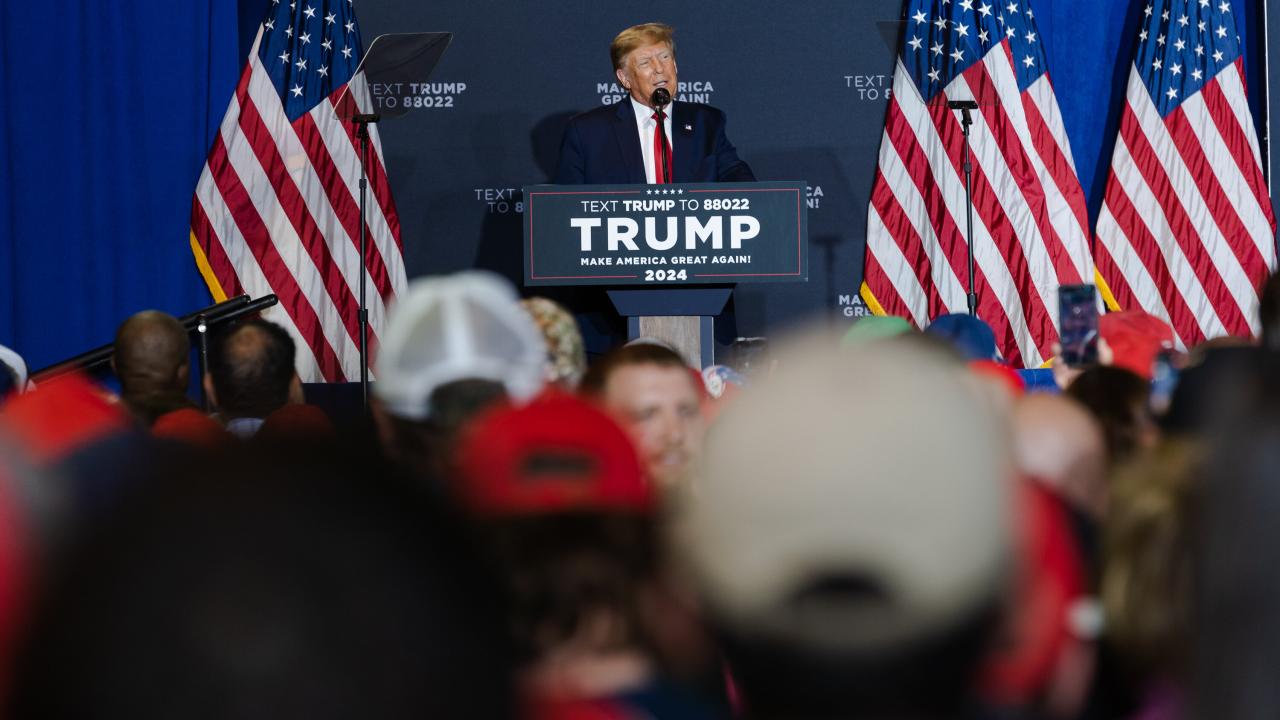
The Supreme Court’s decision on presidential immunity in the Trump case will undoubtedly ripple through future administrations, reshaping the balance of power between the executive and judicial branches. The court’s interpretation of historical precedent and its application to contemporary legal challenges will have far-reaching effects, potentially altering the course of presidential accountability and the scope of executive privilege. The implications are complex and multifaceted, impacting not only the actions of future presidents but also the legal landscape itself.The ramifications of the ruling extend beyond the specific facts of the Trump case.
The court’s decision will serve as a crucial benchmark for future legal challenges related to presidential conduct, potentially setting precedents for investigations into alleged misconduct by future presidents. This precedent will directly impact the ability of courts to compel testimony or documents from presidents, potentially altering the course of investigations and trials.
Potential Impact on Future Administrations
The Supreme Court’s decision will directly affect how future administrations navigate legal challenges. If the ruling limits presidential immunity, future presidents may face more scrutiny and legal accountability for their actions. This increased scrutiny could potentially lead to a shift in presidential behavior and decision-making, potentially impacting policy implementation and the public’s perception of the presidency.
Impact on the Executive and Judicial Branches
The ruling will significantly affect the relationship between the executive and judicial branches. If the court upholds or expands presidential immunity, the judiciary may face increased limitations in its ability to investigate and prosecute alleged presidential misconduct. Conversely, a ruling limiting immunity could empower the judiciary to hold presidents accountable for actions taken during their tenure. The balance of power between these branches is at stake.
The Supreme Court’s ruling on Trump immunity is a fascinating case study in legal precedent. It’s got me thinking about the complexities of legal battles, and how they can ripple out into related issues, like the rights surrounding frozen embryos in Alabama. For instance, the ongoing debate about the rights of those involved in alabama frozen embryos children highlights the broader implications of legal decisions, which ultimately intertwine with the broader question of the limits of presidential immunity.
This intricate web of legal considerations keeps me pondering the overall scope of the Supreme Court’s decisions and their lasting impact.
Potential Legal Challenges and Arguments in Future Cases
Future cases challenging presidential immunity will likely draw upon the Supreme Court’s reasoning in the Trump case. Arguments could center around the scope of the immunity, the specific nature of the alleged misconduct, and the relevance of historical precedent. These arguments will inevitably center on whether the alleged misconduct falls within the scope of immunity or if it constitutes a violation of other legal provisions.
For example, if a president is accused of obstruction of justice, arguments will focus on whether such actions fall outside the bounds of immunity. Different types of misconduct will likely lead to different interpretations and applications of the Supreme Court’s ruling. The scope of immunity in relation to various alleged offenses, such as abuse of power or violation of civil rights, will also be crucial points of contention.
Comparison with Past Cases and Relevant Precedents
The Supreme Court’s ruling will undoubtedly be compared to past cases involving presidential immunity. This comparison will be crucial in shaping future interpretations of the ruling. By examining past precedents, legal experts will be able to identify common threads and discern the ruling’s broader implications for the legal landscape. Cases involving former presidents and their actions post-presidency will be significant in illustrating the scope of the court’s ruling.
Legal Arguments for and Against Immunity
The Supreme Court’s upcoming decision on presidential immunity in the Trump case promises to reshape the balance of power within the American government. The legal arguments surrounding this issue are complex and deeply rooted in the principles of separation of powers, the Constitution, and past legal precedents. Understanding these arguments is crucial for grasping the potential ramifications of the Court’s ruling.The arguments presented in this case, and the likely outcome, will significantly influence how future presidents navigate legal challenges and the relationship between the executive branch and the judiciary.
Arguments Supporting Presidential Immunity
The defense of presidential immunity often centers on the idea of the executive branch’s need for unfettered decision-making. Advocates argue that fear of lawsuits and potential legal challenges would hinder a president’s ability to effectively carry out their duties. The need for decisiveness and swift action, particularly in matters of national security, is a central theme. This argument posits that constant litigation would distract from essential governmental functions.
- Protection of Executive Branch Functioning: The argument stresses that the threat of lawsuits could impede a president’s ability to act decisively and effectively. This is particularly relevant in sensitive matters like national security, where prompt action is often crucial.
- Separation of Powers: Proponents emphasize that allowing lawsuits against presidents could undermine the separation of powers. A president’s focus on legal battles could divert attention and resources from their core duties, potentially disrupting the balance between the branches of government.
- Historical Precedent: Supporters cite historical precedent, highlighting cases where presidential immunity was deemed necessary to maintain the functioning of the executive branch. They argue that a consistent application of this principle is vital for maintaining a healthy balance of power.
Arguments Challenging the Scope and Application of Presidential Immunity
Conversely, the opposing side argues that immunity is not absolute and should not shield presidents from accountability for actions that violate the law. This argument underscores the need for holding powerful figures to the same standards as ordinary citizens. The potential for abuse of power and the importance of accountability are key considerations.
- Accountability for Actions: Opponents argue that presidents, like all citizens, are subject to the rule of law. They believe that presidential immunity can shield presidents from legal scrutiny and potential repercussions for unlawful conduct.
- Balancing Power and Accountability: The debate centers on striking a balance between the need for a functioning executive branch and the principle of accountability. The argument is that presidential immunity can be abused and used to shield individuals from legal consequences.
- Limited Scope of Immunity: Critics argue that immunity should not be absolute and should be carefully circumscribed to protect essential executive functions without undermining the rule of law.
Role of Separation of Powers in the Arguments
The principle of separation of powers plays a central role in both sides’ arguments. Arguments for immunity often invoke the need for a robust executive branch free from excessive legal challenges. Conversely, arguments against immunity highlight the need to balance executive power with the principles of accountability and the rule of law, emphasizing the judiciary’s role in upholding these principles.
Arguments for:
Protecting the executive branch’s ability to function effectively, maintaining the balance of power between branches, and upholding historical precedent.
Arguments against:
Ensuring accountability for presidential actions, preventing abuse of power, and upholding the rule of law.
Public Perception of Presidential Immunity
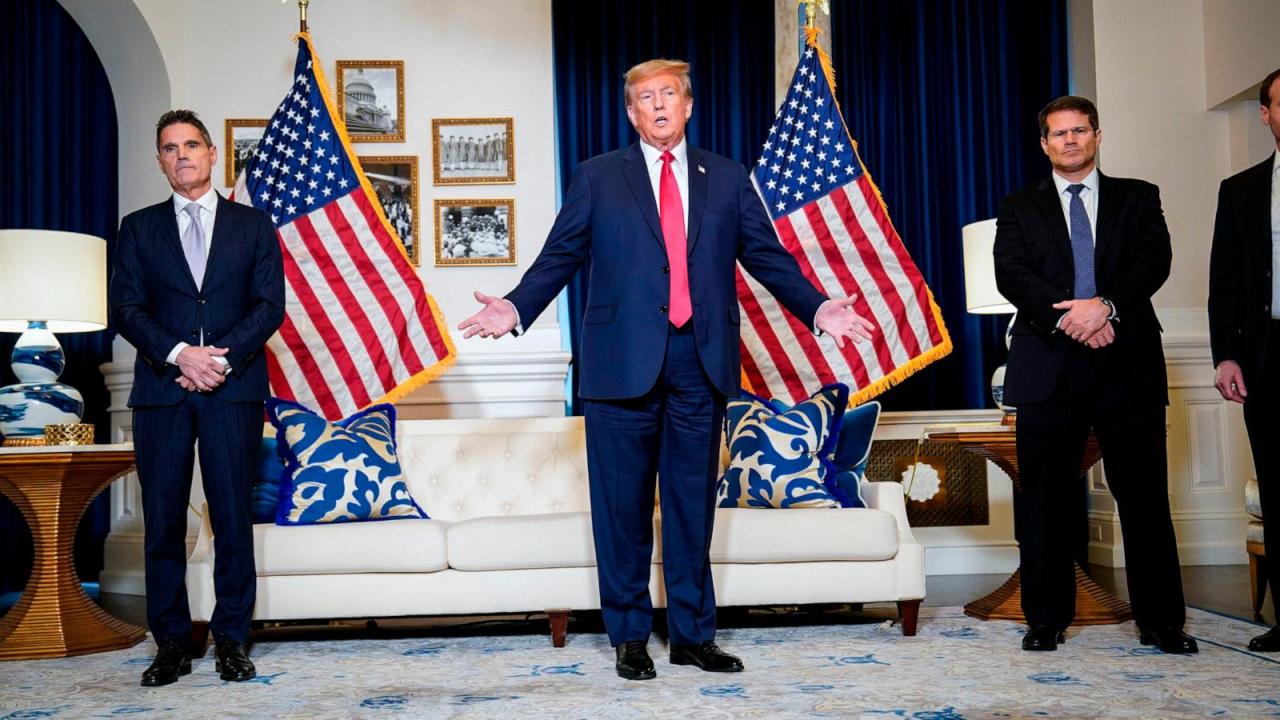
Public opinion surrounding presidential immunity is a complex tapestry woven from differing perspectives, often reflecting broader societal views on executive power, accountability, and the balance between the branches of government. The perception is significantly influenced by political leanings and the specific context of the case, particularly when high-profile figures like former President Trump are involved. This complex interplay shapes the legal discourse and has significant political ramifications.
Diverse Perspectives on Presidential Immunity
Public opinion on presidential immunity is deeply divided, mirroring the broader political landscape. Supporters of strong executive power often argue for broad immunity to protect the president’s ability to effectively carry out their duties without fear of legal challenges, viewing it as essential for national security and policy-making. Conversely, those emphasizing accountability and transparency argue for limited immunity, stressing the importance of holding presidents, like any other citizen, accountable for their actions.
These diverging viewpoints are further nuanced by individual beliefs about the separation of powers and the role of the judiciary in upholding the rule of law.
The Supreme Court’s ruling on Trump immunity is generating a lot of buzz, but did you know that the seemingly unrelated topic of the .NU domain in Sweden, Niue .NU domain Sweden , might offer some interesting parallels in the ongoing legal battles? While the domain situation is fascinating, it’s ultimately the Supreme Court’s handling of Trump immunity that continues to be a major talking point in political circles.
Role of Public Opinion in Legal Discourse
Public opinion, while not a formal legal factor in Supreme Court decisions, undeniably influences the legal discourse surrounding presidential immunity. Public perception can shape the arguments presented by both sides, influencing the framing of the issue and the interpretation of precedents. The media plays a critical role in shaping this perception, and public statements and demonstrations often reflect and amplify existing biases.
The pressure from public opinion can sway legal experts, policy makers, and even judges, pushing them to consider public sentiment alongside legal principles.
Political Ramifications of Varying Viewpoints
Differing viewpoints on presidential immunity have significant political ramifications. Proponents of broad immunity often argue that it protects the integrity of the executive branch and its ability to function effectively. Critics, however, emphasize the potential for abuse of power and the need for accountability. These differing perspectives can create political divisions, with potential consequences for future presidential administrations and the relationship between the executive and judicial branches.
The Supreme Court’s decision, therefore, will have long-lasting implications, shaping the political discourse for years to come.
Breakdown of Public Opinions
| Perspective | Arguments | Impact |
|---|---|---|
| Supportive of Broad Immunity | Protecting executive power is paramount. The ability to make crucial decisions without fear of constant legal challenges is essential for effective governance. This protection is crucial for national security and efficient policy implementation. | Can lead to a perception of a stronger executive branch, potentially at the expense of other branches. Could embolden future presidents in their decision-making. |
| Advocating for Limited Immunity | Accountability is crucial. Presidents, like any citizen, should be held accountable for their actions. Limiting immunity prevents potential abuses of power and upholds the rule of law. | May foster greater public trust in the judicial system and a stronger sense of checks and balances. Could increase scrutiny of presidential actions. |
| Neutral/Undecided | Concerned about the balance between executive power and accountability. Believe that the specifics of each case should determine the scope of immunity. | This group’s perspective may hold sway if the court’s decision appears to be overly biased towards one side or the other. |
Role of the Supreme Court in Defining Immunity
The Supreme Court plays a crucial role in shaping the understanding and application of presidential immunity, often acting as the ultimate arbiter in disputes involving the executive branch. Its interpretations significantly influence the balance of power between the different branches of government and have lasting implications for future presidents and legal challenges.The Court’s pronouncements on presidential power and authority are not static but evolve with the changing political landscape and societal norms.
This dynamic approach, while potentially controversial, is essential in ensuring that legal principles remain relevant and adaptable to the complexities of governance.
Supreme Court’s Historical Approach to Presidential Power
The Supreme Court’s approach to presidential power has evolved over time, reflecting differing societal views on the executive’s role and the need for checks and balances. Early cases often focused on defining the scope of executive power, while later decisions have addressed the limitations on that power, particularly when it intersects with the judicial and legislative branches.Early precedents often emphasized the executive’s broad authority, while later cases increasingly recognized the need for checks and balances.
This evolution is evident in the Court’s interpretations of the Constitution’s separation of powers. For example, the Court’s rulings in cases likeUnited States v. Nixon* (1974) underscore the principle that the executive is not entirely above the law, particularly in the face of compelling legal arguments.
Judicial Precedent’s Influence on Future Cases
Judicial precedent, established through previous Supreme Court rulings, heavily influences the Court’s decisions in subsequent cases, including those involving presidential immunity. The Court often relies on prior precedents to guide its interpretation of legal principles, ensuring consistency and predictability in the application of the law.The Court’s reliance on precedent helps to maintain a consistent application of the law, preventing ad hoc rulings that might be influenced by political considerations.
For instance, if a past case established a specific standard for evaluating immunity claims, the Court is more likely to apply a similar standard in future cases involving similar circumstances.
Supreme Court’s Decision-Making Process in Immunity Cases
The Supreme Court’s decision-making process in immunity cases is multifaceted and involves several key steps.
- Filing and Review: The process begins with the filing of legal briefs and supporting documents by both parties. The Court reviews these documents to determine the legal arguments and supporting evidence. The Court will also consider the historical context of presidential immunity.
- Oral Arguments: Attorneys for both sides present their arguments before the justices. These arguments provide an opportunity for the justices to delve deeper into the specifics of the case and challenge the legal justifications.
- Internal Deliberations: The justices deliberate and discuss the case among themselves, considering the various legal arguments and precedents. They consider the potential implications of their decision on future cases.
- Majority Opinion: The justices reach a decision, and a majority opinion is written to explain the reasoning behind the ruling. This opinion sets forth the legal principles and standards that will guide future cases.
Concluding Remarks
In conclusion, the Supreme Court’s approach to Trump immunity raises complex questions about presidential power and the balance of power within the US government. This analysis reveals the intricacies of the legal arguments, the historical context, and the potential long-term ramifications. The outcome of these cases will undoubtedly shape future presidential conduct and legal challenges.
Answers to Common Questions
What are the key historical precedents for presidential immunity?
Several Supreme Court cases have shaped the understanding of presidential immunity, including
-Nixon v. United States* and
-United States v. Nixon*. These cases have set important legal precedents but also left room for interpretation.
How did public opinion impact the legal discourse surrounding Trump’s immunity claims?
Public opinion played a significant role in shaping the debate. Different perspectives influenced the legal arguments and political context surrounding Trump’s immunity claims.
What are the potential legal challenges in future cases regarding presidential immunity?
Future cases could involve situations where the scope of immunity is unclear or where there are conflicting interpretations of Supreme Court precedents. The separation of powers will continue to be a crucial factor in these discussions.

